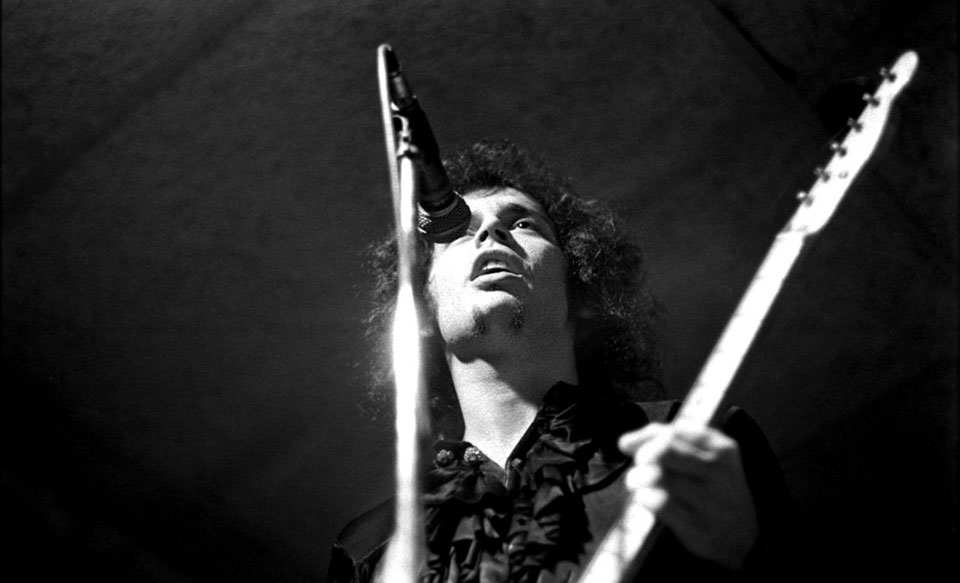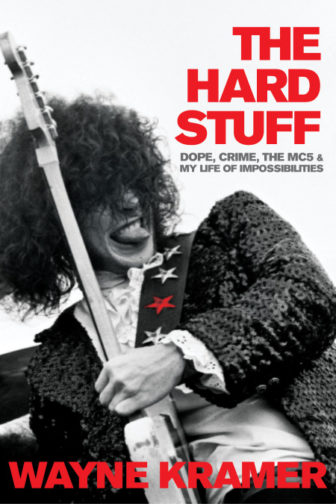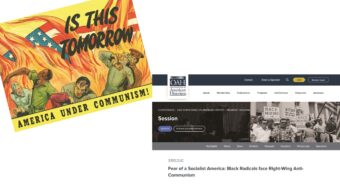
Sex, drugs, and rock ‘n’ roll. We’ve all heard that. Rock music has always been synonymous with extravagances of every sort imaginable. By the late 1960s, the public was accustomed to stereotypical views of rock performers pushing limits. It came with the territory.
How about politics? In the charged arena of those times, it was common for artists of every endeavor to speak out philosophically and politically. The United States was embroiled in turmoil from street demonstrations all the way to the conflict in Vietnam. The era was a permanent time bomb with a short fuse. The Detroit-based MC5 embodied all of it—from a hard rocking lifestyle to revolutionary politics. Wayne Kramer was right in the middle. The talented guitarist and political activist was a founding member of the MC5. He shares his story in his new memoir, The Hard Stuff: Dope, Crime, the MC5 & My Life of Impossibilities.
A Detroit native, Wayne Kramer spent most of his childhood on the tough, gritty streets of that city. Born in 1948, his formative years were immersed in the pop culture of the post-war era. He describes the booming industrial Detroit of those times as racially mixed, but not without tension. Many African Americans arrived from the South with hopes of a better life with good jobs. In reality, as Kramer observed, they were relegated to the toughest and dirtiest positions and still confronted oppression on various levels. This backdrop, along with his account of an absent father early on, made for strong ingredients on his way to help form a hard-driven, angry rock band.
Kramer’s powerful prologue sets the tone for the entire book. He describes an early gig for the MC5 at a city park called Belle Isle in 1967. As a 19-year-old teenager playing in a local rock band, he witnessed the brutality of the Detroit Police Department while dispersing the young crowd after the concert. In Kramer’s words, “The way America treated people of color and limited economic means, the war in Southeast Asia, the irrational drug laws and oppressive sexist norms held by the establishment fueled my defiance. A line in the sand had been drawn, and I knew which side I was on.”
The MC5 gained a reputation as one of the hardest and unapologetically outspoken rock bands in the Detroit area. Their major breakthrough came when they signed with Elektra Records. It was decided that the first album would be a live concert recording from Detroit’s Grande Ballroom. Kick Out the Jams was recorded Halloween 1968 and the band was on its way to international fame. Lead singer Rob Tyner (born Robert Derminer, but later changing his name in honor of his musical hero, jazz pianist McCoy Tyner) revealed the angry fire of the band as he performed the hit title song. Controversy soon erupted as the lyrics on the live album featured an expletive not heard on the radio version of “Kick Out the Jams.” This only intensified the anarchist energy surrounding the MC5.
For readers interested in the merging of artistry and politics in turbulent times, The Hard Stuff really delivers. Kramer dramatically recalls the MC5’s first two appearances at the Fillmore East in New York City. The group’s hard left political stance endeared it to like-minded organizations as a musical harbinger for revolutionary change. But some entities confronted the MC5 as being sellouts against the cause in their pursuit of fame. Kramer describes an angry and emotional confrontation with such a group after their second Fillmore East performance. The MC5 remained dedicated to its collective philosophy of progressive politics, but they were also young musicians who desired stardom. Walking a fine line as both rock stars and political activists would take its toll.
Back in Detroit, Wayne Kramer forged a close friendship with the White Panthers co-founder John Sinclair, who also became the MC5’s manager for a period of time. The White Panther Party was an anti-racist, white political collective directly influenced by the Black Panther Party. The U.S. government constantly monitored and harassed left-wing elements in Detroit. Kramer personally witnessed acts of intimidation, especially around the time of the 1967 Detroit riot. The MC5 was based right in the midst of the upheaval. Kramer proclaims, “We put our career as a band on the line for the principle of revolution as we understood it, and we didn’t end up so well. We were firebombed, harassed, beaten, arrested, jailed, and ultimately kicked out of the music business for our politics.”
The specter of drugs also played a big role in the eventual breakup of the MC5. During their heyday, the MC5 graced the cover of Rolling Stone magazine and also was the only band to perform outside of the 1968 Democratic National Convention in Chicago for the protestors. The MC5’s zenith was short-lived. Kramer takes readers along on his downward spiral as the group experienced a myriad of setbacks from financial to personal. The MC5 disbanded in 1972 and Kramer confronted the seventies in a haze of alcohol and drugs while remaining dedicated to music.
The second half of The Hard Stuff is a grueling journey of one man’s fight with substance abuse. Wayne Kramer comes across as a spirited, creative force who never surrenders. His roadblocks were massive, however. Many setbacks originated from his constant struggle with drug and alcohol addiction. He was sentenced to federal prison on a narcotics trafficking conviction and writes about that time of his life openly and honestly. Kramer exudes an attitude of constantly confronting one’s own demons.
Wayne Kramer is a survivor, and a very talented one. He has been clean of substance abuse for nearly two decades. He currently donates his time inspiring current prisoners through the Jail Guitar Doors USA project, which provides guitars for inmates. Kramer feels many convictions nowadays unfairly carry exorbitant sentences.
Kramer is currently touring in commemoration of the 50th anniversary of Kick Out the Jams. The current incarnation of the band is called MC50, and it features guest musicians from groups including Fugazi and Soundgarden. In his memoir, Wayne Kramer describes himself as “a romantic anarchist.” He always confronted inequality and responded the best way he knew how—by creating music as a force for action. The story of the MC5 remains a powerful example of how music can spark inspiration for the greater cause.
Wayne Kramer
The Hard Stuff: Dope, Crime, the MC5 & My Life of Impossibilities
Boston: Da Capo Press, 2018

MOST POPULAR TODAY

Ohio: Franklin County treasurer attends Netanyahu meeting, steps up Israel Bond purchases

After months of denial, U.S. admits to running Ukraine biolabs

Hold the communism, please: SFMOMA’s Diego Rivera exhibit downplays artist’s radical politics

“Trail of Tears Walk” commemorates Native Americans’ forced removal

‘Warning! This product supports genocide’: Michigan group aims to educate consumers






Comments